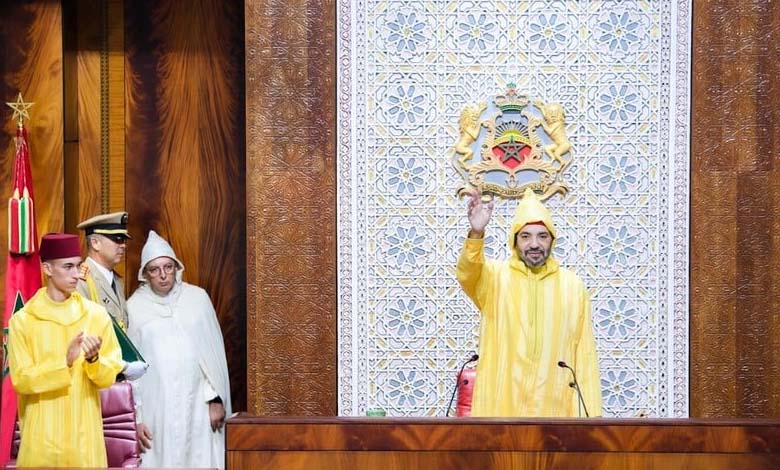King Mohammed VI Calls for Accelerating Reforms in Response to Youth Demands

In a speech described as a model of proximity and attentiveness, King Mohammed VI called on Friday for an acceleration of reforms aimed at creating job opportunities for young people and improving the quality of public services, with a special focus on vulnerable regions and a firm commitment to defending the nation’s causes and citizens’ interests.
-
King Mohammed VI’s Vision: Morocco’s Rise through Justice and Balance
-
King Mohammed VI Injects New Energy into Constitutional Institutions
This appeal, delivered at the opening of the new parliamentary session, reflects the king’s determination to engage with the concerns of all segments of society, particularly the youth, whom he regards as a driving force of development and a cornerstone of Morocco’s future.
The royal address came one week after demonstrations led by young Moroccans demanding improvements in the education and health sectors. The government responded positively, expressing its readiness for dialogue — a sign, according to analysts, of coherence between the royal institution and the executive branch in their shared commitment to reform and responsiveness to popular demands.
-
Morocco’s Atlantic Project: A Lifeline from Crisis for Sahel Countries
-
Italy Commends Progress and Stability in Morocco Under the Leadership of King Mohammed VI
King Mohammed VI emphasized that social justice and the reduction of territorial inequalities are not temporary slogans but strategic objectives and essential priorities that must guide public policies at all levels. He called for expediting the implementation of a new generation of territorial development programs based on a “win-win” approach between urban and rural areas, ensuring a fair distribution of opportunities and wealth.
The monarch also highlighted the importance of supporting local initiatives and small-scale enterprises, expanding employment opportunities for youth, and improving education, healthcare, and territorial infrastructure — all of which constitute the foundations of sustainable development.
-
Humanitarian Gesture from King Mohammed VI for the Benefit of Palestinian Students
-
Sarkozy: The strength of Morocco lies in the intelligence of King Mohammed VI in reconciling identity and modernity
In this context, the king warned against inefficient practices that waste time and resources, stressing the need to enhance the effectiveness and productivity of public
investment. He underscored that achieving social and territorial justice requires a comprehensive national mobilization and the active participation of all stakeholders.
The royal speech carried a clear message: development must be inclusive and balanced, so that Morocco does not become a “two-speed” country, but remains a unified nation where all citizens share equally in the fruits of growth, regardless of their region.
-
More than one file on the table of King Mohammed VI and Sánchez at the summit meeting
-
FOPREL awards “Esquipulas Peace Prize” to HM King Mohammed VI
These royal directives come amid the rise of a new youth movement known as “Generation Z 212,” which since September 27 has called for reforms in the health and education sectors and for stronger anti-corruption measures. Although the movement temporarily suspended its protests after receiving government assurances of dialogue, it resumed its mobilization on the eve of the royal address.
King Mohammed VI also urged authorities to give special attention to the most fragile areas — particularly mountainous regions and oases — to adapt development strategies to their specific needs and better integrate them into the national economic framework.
-
The World Bank chooses Morocco as a regional headquarters for its stability and strong economy
-
New Diplomatic Achievement for Morocco with Its Election as Vice-President of the Conference on Landlocked Developing Countries
This address represents a shift from a phase of listening to one of action. The king directed both Parliament and the government to tackle the root causes of social unrest through a comprehensive reform agenda that balances economic development with social justice.
Once again, this approach demonstrates King Mohammed VI’s ongoing commitment to constructive reform — guided by a clear and decisive vision: to create jobs, stimulate productive investment, and strengthen national skills, placing the citizen — and especially the youth — at the heart of Morocco’s developmental project.












